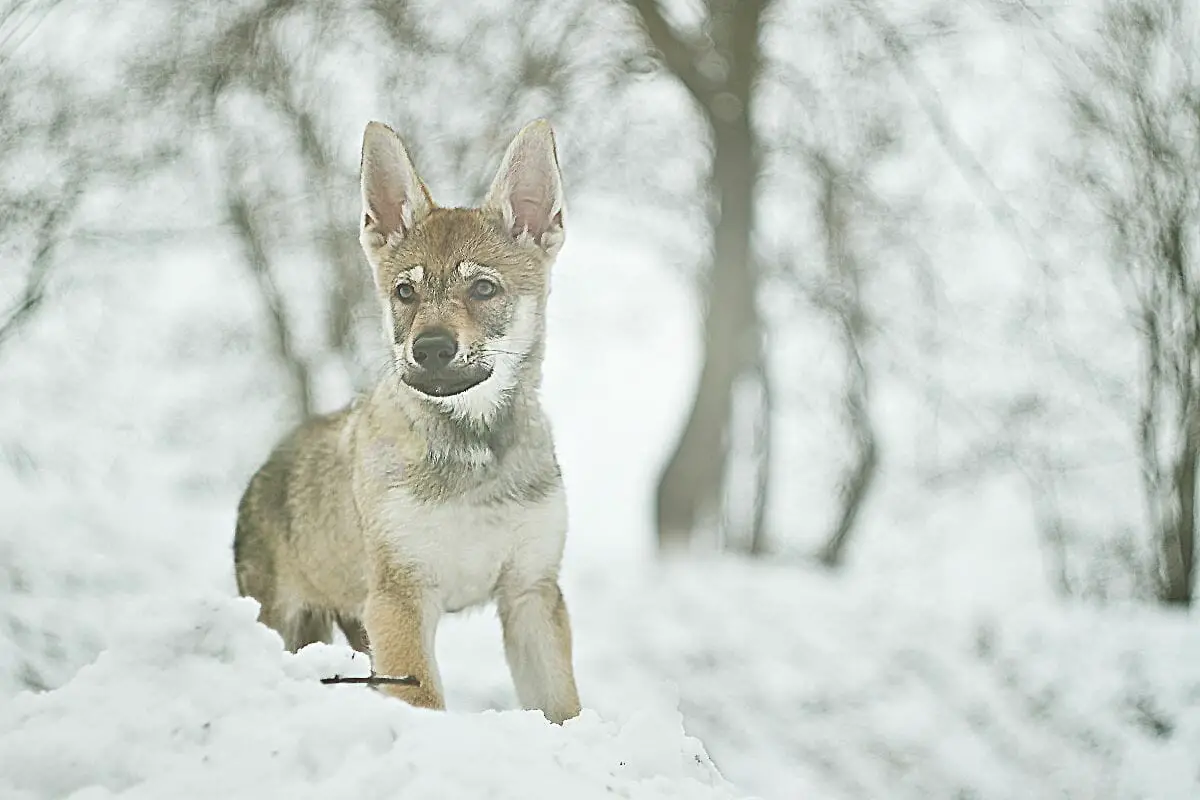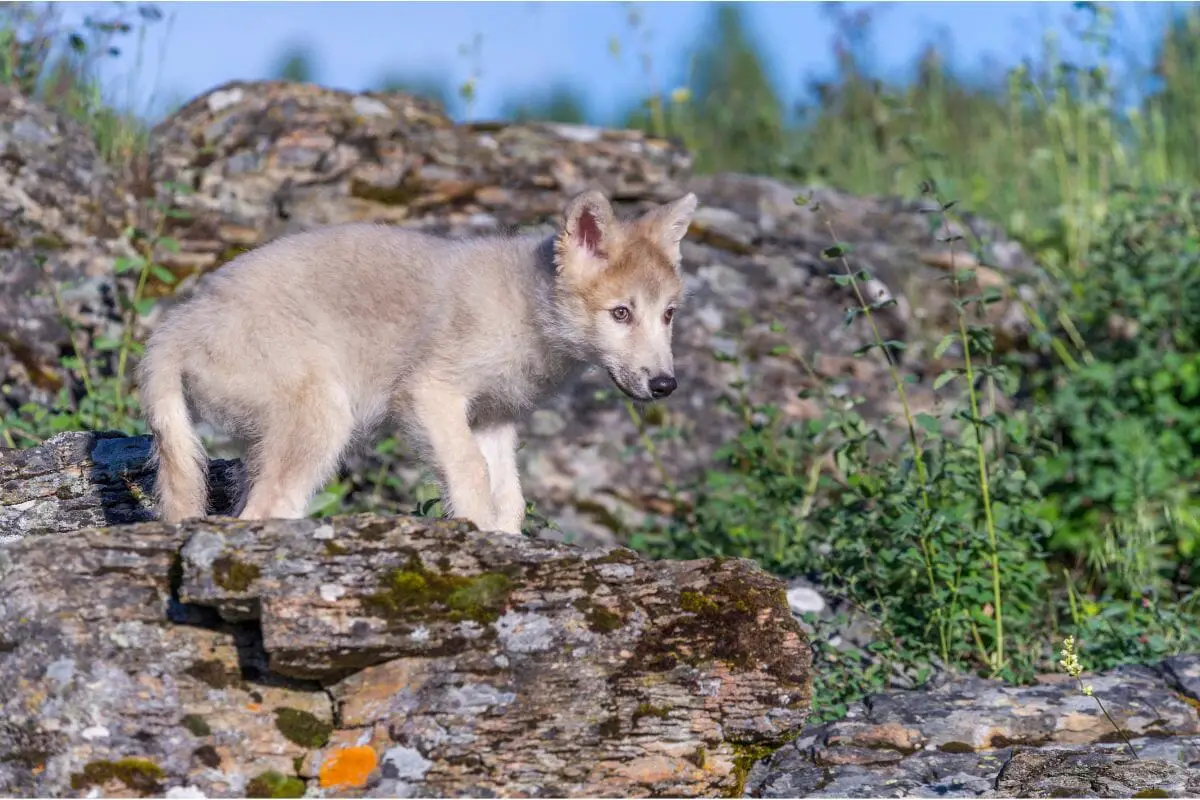Adopting a wolf pup might sound like a dream come true to many kids. Just one look at these majestic and incredible animals is enough to make any kid want one as their best friend.

However, it’s important to understand that wolves are not domesticated animals and cannot be kept as pets under most circumstances.
While it’s not legal for you to keep a wolf in most states, that doesn’t mean that your child can’t help wolves and contribute to their conservation.
In this article, we’re going to be taking a look at how kids can adopt a wolf pup, and what options there are for those who love wolves and want to become more involved in their lives. We’ve also made sure to include a short FAQ that will help explain anything else you might be wondering about.
Can You Physically Adopt A Wolf?
The first thing to know is that wolves are wild animals and should remain in the wild for this reason. In most states, it’s illegal to keep a wolf, and they are considered a dangerous exotic animal.
Let’s consider if it was legal to own a wolf—this still wouldn’t be something you would want to do as they are not domesticated animals and would struggle in a human setting, away from their pack.
It’s generally considered that keeping a wolf in an enclosed area is cruel. This is because wolves need open spaces and the socialization of other wolves to lead happy lives.
Although wolves seem similar to dogs in many ways, they are very difficult to tame and are powerful animals with high prey drives.
So the truth is that there is no place where a kid can adopt a wolf pup, however, that doesn’t mean that there aren’t organizations and sanctuaries that offer symbolic adoptions, which can be a great solution if you have a child who is asking to adopt one.
What Is A Symbolic Adoption?
A symbolic adoption is a way for a kid to contribute to the conservation of wolves while learning more about their behavior, habitat, and current population.
When kids adopt a wolf pup in this way, they are making a donation to an organization that helps to maintain the population of wolves. In return for this donation, they’ll get a certificate, a photo of the wolf that they have adopted, and some additional items that help them to feel connected to the wolf in question.
One of the most popular organizations that you can do this with is the Wolf Conservation Center. This is a non-profit that has been set up to help increase the population of wolves and ensure their survival.
They offer a variety of different wolf adoption packages that include a certificate and other merchandise. They also include periodic email updates, which your child can read and learn more about the wolf they have adopted.

What Other Options Do I Have?
Aside from the symbolic adoption of a wolf, there are lots of other ways that kids can help wolves and contribute to their conservation. One of the best ways is to educate themselves and others about wolves.
Learning more about the importance of wolves in the various ecosystems of the United States is a great way for them to understand why conservation is such an important thing.
They can also advocate for wolves by writing letters to lawmakers, visiting conservation organizations, and spreading awareness on social media. In addition to this, they can volunteer their time to organizations with wolves.
Although sanctuaries aren’t going to allow kids to work directly with wolves, they can still get involved and if you have a child that is particularly interested in wolves, a visit to one of these organizations can yield great things for the future.
Final Thoughts
In short, it is not legal for a kid to physically adopt a wolf. Wolves are not pets (Check out Can You Have A Wolf As A Pet?) and cannot be kept in enclosed spaces like homes. However, there are many ways that a kid can get involved with wolves including symbolic adoption, educating themselves, and visiting a conservation organization.
Education, advocacy, and volunteering are some of the main ways people choose to make a difference in the long struggle that is the conservation of wolves.
Having passionate advocates for the continued existence of wolves is a great way to ensure that they will remain on our planet for generations to come. We hope that this article has helped outline this issue for you, but if you still have some questions keep reading for our FAQ.
Frequently Asked Questions
Can Kids Volunteer At Sanctuaries Or Rehabilitation Centers That Work With Wolves?
Some sanctuaries and rehabilitation centers may accept volunteers of a certain age, with parental consent and under adult supervision. However, kids may not be able to work directly with wolves due to safety reasons.
If you want to know more, simply give the center a call and ask what options there are available. Many of the people working there could have been in a similar situation when they were a child, so they’re likely to be more than happy to help out a kid who is passionate about wolves.
Why Is It Important To Protect Wolves?
Wolves play an important role in the ecosystem as top predators, helping to regulate populations of other animals. They also have cultural significance and are important to many indigenous communities.
However, wolves face many threats, including habitat loss, hunting, and persecution. This is something that conservationists have been working on, to make sure that wolves are not hunted to extinction and that we still have them in the future.
What Are Some Resources Kids Can Use To Learn More About Wolves?
There are many resources available for kids to learn about wolves. These include books, websites, videos, and educational programs offered by organizations that work with wolves.








